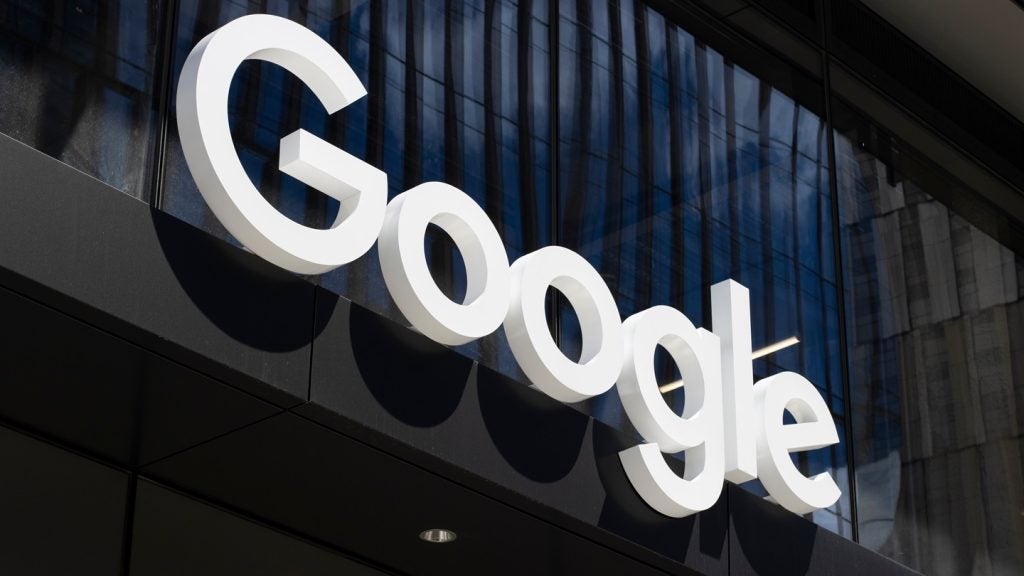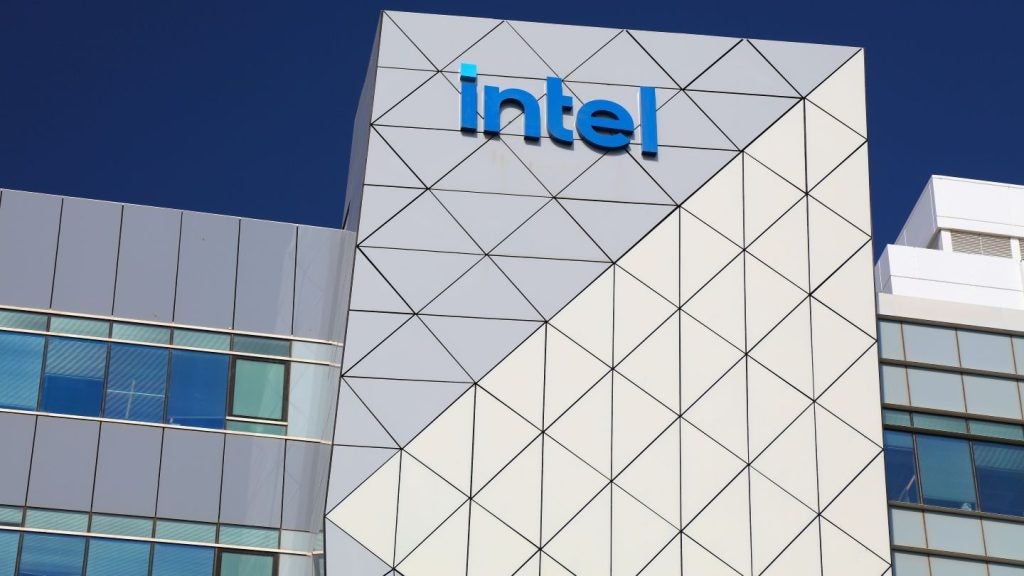
Tech watchers experienced absolute carnage in November as tens of thousands of workers lost their jobs in a string of mass-layoffs.
Silicon Valley giants who’d spent the last decade growing accustomed to progressively prosperous quarterly results have been forced to take a butcher knife to their headcount. For some, this was the first time they’ve ever had to cut staff. The shock waves of the trauma are bound to send ripples across the industry for months.
However, the bloodbath didn’t start last month. Talent has found themselves bound for the chopping block for months. Buy-now-pay-later (BNPL) leader Klarna has suffered through two rounds of layoffs this year. Its Australian rival BizPay laid off 30% of its workforce in May. About the same time fintech startup Mainstreet announced that about 30% of its workforce would be shown the door.
Other names to be added to the list are stocktrading app Robinhood, electric carmaker Tesla, home fitness company Peloton, ride-hailing venture Lyft, and computer giant Microsoft.
Despite the steady slashes of tech companies’ workforces over the year, it was easy to get the impression that the manure hit the proverbial fan in truth last month. Social media giants Twitter and Meta both set off waves of mass-layoffs across the tech industry in November. They were not alone.
The collapse of cryptocurrency exchange FTX and crypto lender Blockfi worsened the chaos, displacing even more workers.

US Tariffs are shifting - will you react or anticipate?
Don’t let policy changes catch you off guard. Stay proactive with real-time data and expert analysis.
By GlobalDataSo how did we get here?
What caused the tech mass-layoffs in November?
Several factors have contributed to creating a perfect storm across the tech industry. Vladimir Putin’s illegal war in Ukraine is one. Following the invasion, democracies around the globe responded by slamming Moscow with unprecedented sanctions. Russia responded by cutting off Europ from its supply of natural gas, pumping up the prices of oil and natural gas in the process. The war has also exacerbated food shortages around the globe.
Then there’s the hangover from government spending during the pandemic to save jobs and lives. While those expenses can be understood, governments are now paying the bill.
The coronavirus crisis contributed to the carnage in the tech industry by creating a sense of hypergrowth. With people being cooped up at home due to government lockdowns to prevent the spread of the contagion, they needed a series of creature comforts. These included buying computers for their home offices, order in food, socialising online and ordering a steady stream of goods from the likes of Amazon.
Many tech firms bet that this growth would continue past the health crisis and invest accordingly in both equipment and recruitment. The fact that the bull market didn’t continue in 2022 is one of the reasons why these firms now have to cut staff.
They were not alone in thinking that the good times would keep on rollin’. One of the reasons why the Federal Reserve apparently kept interest rates low during the past two years was because its analysts of them thought the same. The current high-interest rates have been interpreted as an overreaction to its policies over the past two years.
Some market watchers believe these factors will contribute to hurling the US and other markets into a recession over the next few months. A lot of people will suffer as a result.
For tech firms already tormented by the cold winds sweeping across the market, being in good company will be a small comfort. Innovative firms have been cut by painful falling knives of their stocks. Microsoft has lost $700bn of its market cap and Meta has lost over $600bn. In total, the tumultuous times have cost tech investors roughly $7.4tn in losses on the Nasdaq.
Unsurprisingly, funding in the tech industry has run dry in 2022. This year, the global industry has only raised north of $602.7bn across 19,050 venture financing, equity offering, private equity and debt offering deals, according to research firm GlobalData.
The lack of funding and the frosty market conditions have both contributed to the mass-layoffs this year. First, however, companies wound down their hiring.
The number of open roles in the tech industry has dropped steadily across the globe over the past year, according to data from GlobalData.
Back in November 2021, at the peak of last year's bull market, there were 591,955 active tech roles posted across the global industry. By the same time this year, that figure had dropped to 390,788 active roles.
The industry is also advertising fewer roles. In November 2021, there were jobs being posted 225,506. That figure has plunged to 96,179 posted roles this year.
Now, those hiring freezes have turned into mass-layoffs. Tens of thousands of skilled professionals have lost their jobs due to the tech bubble popping.
However, one company's loss is another company's gain. Several tech companies have eagerly been scooping up displaced workers, hoping to benefit from their skills and experience.
Nevertheless, things went from bad to worse last month. Let's look at 15 tech companies that suffered through mass-layoffs to get an idea of how wide-ranging the problem is.
Meta
Meta announced large-scale cuts to its workforce in November. Not only was this the first large-scale cut the company had to do, but the size of it also shocked the industry. Roughly 11,000 Meta workers would be axed as a consequence of the news.
The tech titan’s mass-layoffs come after the venture’s floundering fourth-quarter earnings pushed the company’s stock back to its lowest point in six years. On top of this, the company has seen consistent challenges from rivals like TikTok and other apps, as well as a slowdown in advertisement due to Apple’s privacy changes to it iPhone operative system.
“Their advertising revenue has been their bread and butter for over a decade, so it is a big hit,” Rashid Ali, co-founder and CEO of UK metaverse company Exarta, recently told Verdict.
The company expanded its workforce by around 60% during the pandemic. In a note, CEO Mark Zuckerberg said those investments had been premature and that he’d been betting that the surge in online activity seen during the pandemic would continue.
“Unfortunately, this did not play out the way I expected,” he said. “Not only has online commerce returned to prior trends but the macroeconomic downturn, increased competition, and ads signal loss have caused our revenue to be much lower than I’d expected. I got this wrong, and I take responsibility for that.”
Shortly after completing his purchase of Twitter after a tumultuous legal battle, one of Elon Musk’s first orders as was to lay off around 3,700 employees – around half of the workforce.
The SpaceX billionaire claimed his decision was based on Twitter making a loss of around $4m per day.
Still, if Musk is serious about turning Twitter around, axing droves of workers doesn’t help as many defenestrated staff members have voiced their dissatisfaction with the new owner across his own platform and in public.
While Musk seems to rather want to talk about how he’ll transform Twitter into a superapp, the tech titan’s bungled mass-layoffs and the chaos around the overhauled blue tick verification process mean most of our attention is somewhere else at the moment.
DoorDash
Delivery startups thrived during the pandemic. Services like Deliveroo, Uber Eats and DoorDash flourished from their customers being confined to their humble abodes for months on end. People turned to food deliveries and online shopping in droves in order to add some much-needed sparkle to the dreariness of lockdowns.
Then social restrictions eased in many places around the world despite the coronavirus still skulking about, infecting people.
The end of coronavirus restrictions and the rising cost of living crisis have made analysts expect that people will cut down on services like food delivery and entertainment streaming. So, it’s hardly surprising that analysts are expecting the food delivery industry to suffer as a result.
However, even as restaurants opened up, DoorDash maintained an air of calmness. In February, it maintained that it would continue to grow across both food and grocery deliveries.
“We continue to believe the transition to omni-channel local commerce is in its early innings and we are just beginning to build the platform we envision,” the company wrote in a shareholder letter at the time. “While we are the leader in the restaurant category in the US, we see significant room for growth within this category and even more in our newer categories.”
DoorDash continued to claim it was beating the trend over the months that followed. As late as in August, the company delivered quarterly results that beat Wall Street’s expectations. It did, none the less, trade at a significantly lower price than during its 2021 November peak of $245.97. DoorDash shares are currently trading at $58.25.
Now, however, it seems as if the bubble has burst. In late November, CEO Tony Xu announced "the most difficult change to DoorDash that I've announced in our almost 10-year history."
The news? DoorDash was laying off 1,250 employees in an attempt to real in costs after having "sped up" its hiring during the pandemic.
"While our business continues to grow fast, given how quickly we hired, our operating expenses – if left unabated – would continue to outgrow our revenue," he said.
"I did not take this decision lightly. We have and will continue to reduce our non-headcount operating expenses,but that alone wouldn’t close the gap. This hard reality ultimately led me to make this painful decision to reduce our team size."
While Xu seemingly took a page from Zuckerberg's book and acknowledged some other blame he had in the mass-layoffs, he also blamed the macroeconomic situation.
Tencent
When Musk bought Twitter, he expressed a vision of turning the social media company into an "everything app". Industry analysts interpreted it as a plan to create a so-called superapp, a place where users could do everything from shop to date, socialise to hail a cab. Meta's aspirations to reinvent itself as a metaverse company have often been interpreted as a way for Zuckerberg to create a superapp of his own.
So far, however, superapps are something only seen in Asia. Chinese mega-business Tencent's WeChat is often put forward as a prime example of how a fully-fledged superapp could look like. Musk even namedropped WeChat at his first town hall meeting at Twitter, saying that there was no "equivalent out of China."
However, Tencent has not been immune to market uncertainties. In November, it joined the flood of tech companies announcing new job cuts, having previously implemented mass-layoffs in its gaming division in September. Those first cuts affected about 5,000 jobs, representing about 5% of Tencent's workforce, TechCrunch reported.
The second round of layoffs, reported in November, also targeted the gaming division as well as Tencent's video streaming and cloud businesses. However, so far we've seen no reports about the scope of the second round of cuts.
The cuts in Tencent's gaming division are not insignificant, but symptomatic to a wider trend in the techsphere in general, but in the gaming industry in particular. As Verdict has reported in the past, the industry has suffered a bit of a wobble this year.
The game sector has grown over the past decade, culminating in an explosive boom during the pandemic. Combined sales of games, consoles and subscriptions totalled a whopping $191bn globally in 2021. According to Ampere Analysis , this is due to drop by 1.2% to $188bn this year. People are spending less money on games.
A number of factors can be seen for the whole industry’s decline. Global inflation is the obvious one. With the cost of living going up, purse strings are becoming increasingly tighter.
Another is supply issues with gaming hardware which heavily impacted the launch of Sony’s Playstation 5. The manufacturing speed needed to keep up with the demand was impossible to achieve due to chip shortages, making the console an extremely hard piece of kit for gamers to get their hands on.
Shortages also affected PC gamers who wanted to upgrade their machines, as graphic cards and processors were also in low supply.
Chime
A few years ago, fintech fanboys loved to talk about neobanks. They couldn't stop themselves from praising challenger banks and their perceived ability to overturn incumbent banks' outdated business models. The future, they said, was digital, with no physical branches. The revolution was imminent, they said. It was a question of "when", not "if" ancient and traditional banks would be outrun by the new kids on the block.
Challenger was one of the hottest things in the fintech industry a few years ago. However, as outlined in the recent report Beyond the Hype: Insight into Digital Challenger Banks from research firm GlobalData, the hundreds of startups around the world that have been launched over the past decade have struggled to make ends meet. In other words, it’s only on rare occasions that neobanks make a profit.
Chime was one of those challenger banks. The company claims to have hit EBITDA profitability earlier in the year, meaning its generated earnings before interest, taxes, depreciation, and amortisation had been added to costs were positive.
However, the fintech favourite has not been immune to the harsh winds blowing across the industry.
In November, Chime said it had laid off 12% of its staff due to “current market dynamics”, according to a spokesperson speaking with Reuters. That represented about 160 jobs being lost.
According to an internal memo obtained by TechCrunch, Chime co-founder Chris Britt described that the move was one of many that would help the company thrive “regardless of market conditions.” In the memo, Britt said that he and co-founder Ryan King are re-calibrating marketing spend, decreasing the number of contractors, adjusting workspace needs and renegotiating vendor contractors.
“The challenger bank market has become extremely saturated over the last decade, with many fintech businesses offering similar services to streamline the banking experience for consumers," Beyza Karakoy, associate analyst at GlobalData, tells Verdict.
"It is only natural that as we brace recession, the hype and demand that kept fintech companies afloat during the pandemic will no longer be sufficient to achieve profitability and retain competitiveness. Multiple fintech companies, including Chime, are announcing layoffs citing these tougher market conditions for their downsizing.
"Chime’s success with predominantly low-income consumers means that its business is inevitably impacted by the cost of living crisis and changing consumer spending habits as a result. The layoffs are a sign that companies in the challenger bank market will need to adapt their revenue models to the changing economic climate or risk being forced out the market by bigger players.”
The news comes as fintech funding has dried out to a trickle this year. Investors have injected $78.4bn into the sector across 1,681 capital raises in 2022, according to research firm GlobalData. That’s down from $261.7bn across 2,923 rounds in 2021.
HP
There was a boom in technology sales over the course of the pandemic. As people adjusted to working from home, they invested in proper home offices. Unsurprisingly, sales of computers surged by as much as 2.8% in the second quarter of 2020. HP was one of the key computer makers that benefited at the demand created at the onset of the pandemic.
However, things have changed. Companies increasingly want workers to return to the office. Much like tech ventures in other sectors, computer makers have found that the rush to buy new PCs didn't last.
Faced with slipping sales, HP announced in November that it would slash its workforce by between 4,000 and 6,000 people over the next three years. As of October 2021, HP had around 51,000 employees, according to CNBC.
Amazon
No one should've been surprised when ecommerce giant Amazon announced in November that it would lay off 10,000 workers. The tech giant had already paused hiring and halted some experimental projects and opted to close, delay or cancel new warehouse locations.
Nevertheless, when the news hit, some were taken back by the size of the cuts, which CEO Andy Jassy said could go on well into 2023. The cuts would be made across divisions, including retail, human resources and devices. That’s right, it’s gutting its Alexa unit. Alexa, can you define “painful”?
Other tech roles affected by the mass-layoffs announced in November were in its Luna cloud gaming unit.
The cuts were, just like among many of the other roles slashed across the industry, done in an effort to rain in cash burn, hoping the efforts would strengthen Amazon’s position amidst the raging storms of the market.
Nuro
Self-driving cars look more and more like a pipe dream. Long have excitable entrepreneurs envisioned a future where no one is behind the wheel of a car. Instead, the imagined vehicles are operated fully by artificial intelligence, driving passengers safely from one place to the next. A string of startups and Big Tech firms have announced projects to realise those fantasies.
Despite their best efforts, they have been held back by a combination of challenges such as the limitations of the technology and regulatory red tape. It also doesn't help their case that semi-self-driving cars keep crashing.
The dream of autonomous vehicles have crept even further away recently. First, Ford announced that it would stop funding Argo AI, meaning that the self-driving car company was forced to shut down. Then, in November, autonomous vehicle delivery startup Nuro joined the growing list of tech companies announcing mass-layoffs.
In an effort to save cash amidst the cold storms blowing across the global markets, Nuro announced that about 300 employees, representing roughly 20% of its workforce, would be shown the door.
In an email seen by TechCrunch, the founders took responsibility for the layoffs, saying they were a result of over-hiring during the pandemic and asked those forced to leave for forgiveness.
The founders, Jiaun Zhau and Dave Ferguson, also said that the decision to hire more people in 2021 came as they had enjoyed the "strongest fundraising environments in history." Faced with the prospects of easily accessibly growth capital, the corporate chieftains concluded that the best course of action would be to aggressively hire more workers.
The Nuro bosses had had reason to be bullish. In 2021, they had raised $600m in a fundraising round led by Tiger Global Management. The Series D raise pushed the startup's valuation to $8.6bn. It also saw it enjoy a cash influx from investors like Google, Baillie Gifford, Fidelity Management and Research Company, Gaorong Capital and SoftBank.
The company is operating in Houston, Palo Alto and Mountain View, but has also wound own its operations in Phoenix between July and October this year.
Zilch
Zilch is a UK-based BNPL firm that burst onto the scene in 2018, confident that it could take on the likes of Klarna, Affirm and AfterPay. The bullishness never faded over the next four years, despite the onslaught of the pandemic and growing competition in the BNPL space from financial service providers like PayPal and Mastercard.
Instead, the company seemed to grow from strength to strength. When it didn't accuse Klarna of copying its services – which Klarna denied – the company not only managed to kick off its US expansion, but also secured a $2bn valuation of the back of $110m Series C round earlier in 2022, news Verdict was the first to break.
However, it seems like the company's confidence may have taken a hit in November. That was when the tech startup reportedly joined the long list of startups suffering through mass-layoffs. The Evening Standard reported that as much as 10% of the company's staff could be let go due to far-reaching restructuring of the business.
A spokesperson for Zilch told the Evening Standard: “In just 24 months since launch, Zilch has created over 250 new jobs, gained millions of customers at record speed and recently turned gross profitable.
“But in the last year the world has changed, and any business that thinks it’s immune to this historic economic change is mistaken. With millions of customers depending on us, we must continue to drive towards bottom-line profitability.”
Carvana
Online used car retailer Carvana announced in late November that it planned to lay off about 1,500 employees, representing roughly 8% of the company's workforce. The jobs lost will impact reportedly impact corporate, operations and technology roles. Employees who lost their jobs would reportedly receive separation and severance pay through at least January 1, along with three months of healthcare coverage and receive unvested equity awards through cash payments.
CEO Ernest Garcia told staff that the cuts were part of a broader effort to reduce costs, according to sources familiar with matter, Yahoo Finance reported. Alongside the layoffs, Arizona-based Carvana would also eliminate some locations and end certain shifts. In what has become a common refrain this year, the company blamed the culling of the company's workers on the challenging economic environment.
The layoffs were only the latest setback for the online used car retailer. Carvana has been struggling with cash outflows and with tumbling stock price. Its current struggles are in stark contrast to its successes during the second year of the pandemic. During the Covid-19 crisis, the company benefited from the shortage of new cars created by throttled supply chains. The shortage created a demand for used cars.
However, the market has changed. The cost-of-living crisis, falling used-car prices and surging interest rates have hurt consumer demand. Thus, the company was forced to axe staff.
Cazoo
Carvana isn't the only tech company to announce mass-layoffs in November. In the same month, UK-based online car marketplace Cazoo announced plans to lay off 750 jobs and withdraw its operations from European markets, UK Tech News reported. By doing so, Cazoo kept its fingers crossed that it would “cash flow breakeven” before the end of 2023
Following its European exit, Cazoo will shift its entire focus to the UK market. Cazoo had previously sacked 750 employees in June due to a “business realignment plan”.
Cisco
Tech giant Cisco announced mass-layoffs of some 4,100 workers, about 5% of its 83,300 global workforce, in November.
The move was part of a $600m pivot to capitalise on growth opportunities, strengthening its network, security and platform offerings, Fierce Telecom reported.
While a lot of people will lose their jobs, Cisco also said that the it would also hire new talent for new roles, meaning the company may end up having as many employees at the end of 2022 as at the beginning of the year.
GoTo
Indonesian GoTo is another Asian attempt at creating a superapp. The company was created through a merger between Grab rival Gojek and ecommerce platform Tokopedia in 2021. In November, the company said in its Q3 2022 earnings call that it would lay off 12% of its workforce, equating to around 1,300 employees. The cuts were made as part of the company's cost-saving efforts.
"As a people-centric organisation, deciding to reduce headcount is painful for us, but it was an imperative step to support the long-term health of the business as we continue on our mission," Andre Soelistyo, CEO of GoTo, said during the earnings call.
He hoped the cost-cutting exercise would enable GoTo to become profitable in between 12 to 15 months.
Zomato
Indian food aggregator firm Zomato joined the list of tech companies announcing mass-layoffs in November. According to Business Today, the company plans to reduce its headcount by 4% on the back of co-founder Mohit Gupta leaving the company.
The publication said that at least 100 employees across Zomato's tech, product, catalogue and marketing departments had already been impacted by the mass-layoffs announced in November.
Salesforce
Software behemoth Salesforce has confirmed that is has also axed hundreds of employees. Although, the tech giant said that the mass layoffs will only affect fewer than 1,000 employees, TechCrunch reported.
GlobalData is the parent company of Verdict and its sister publications.







